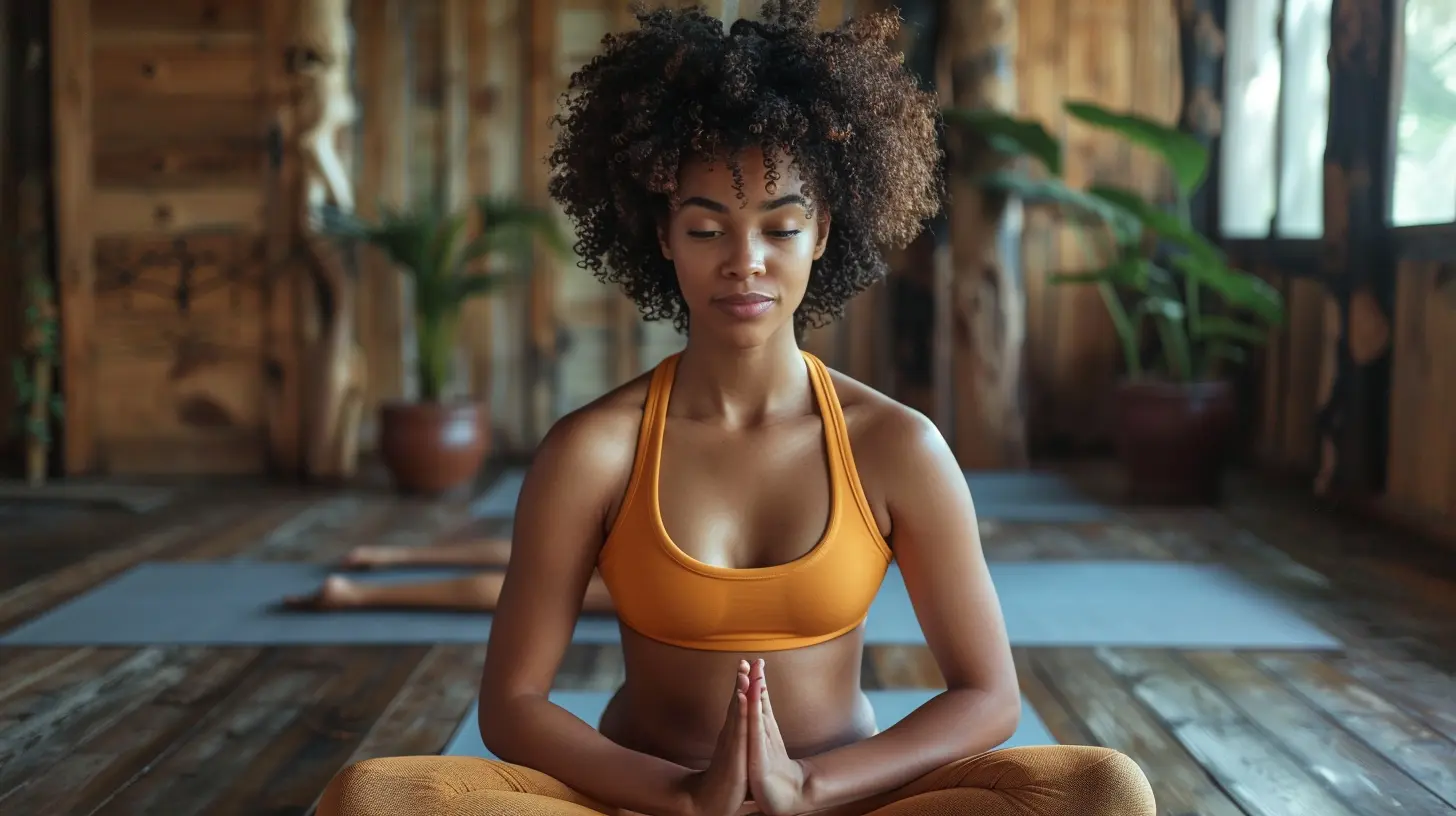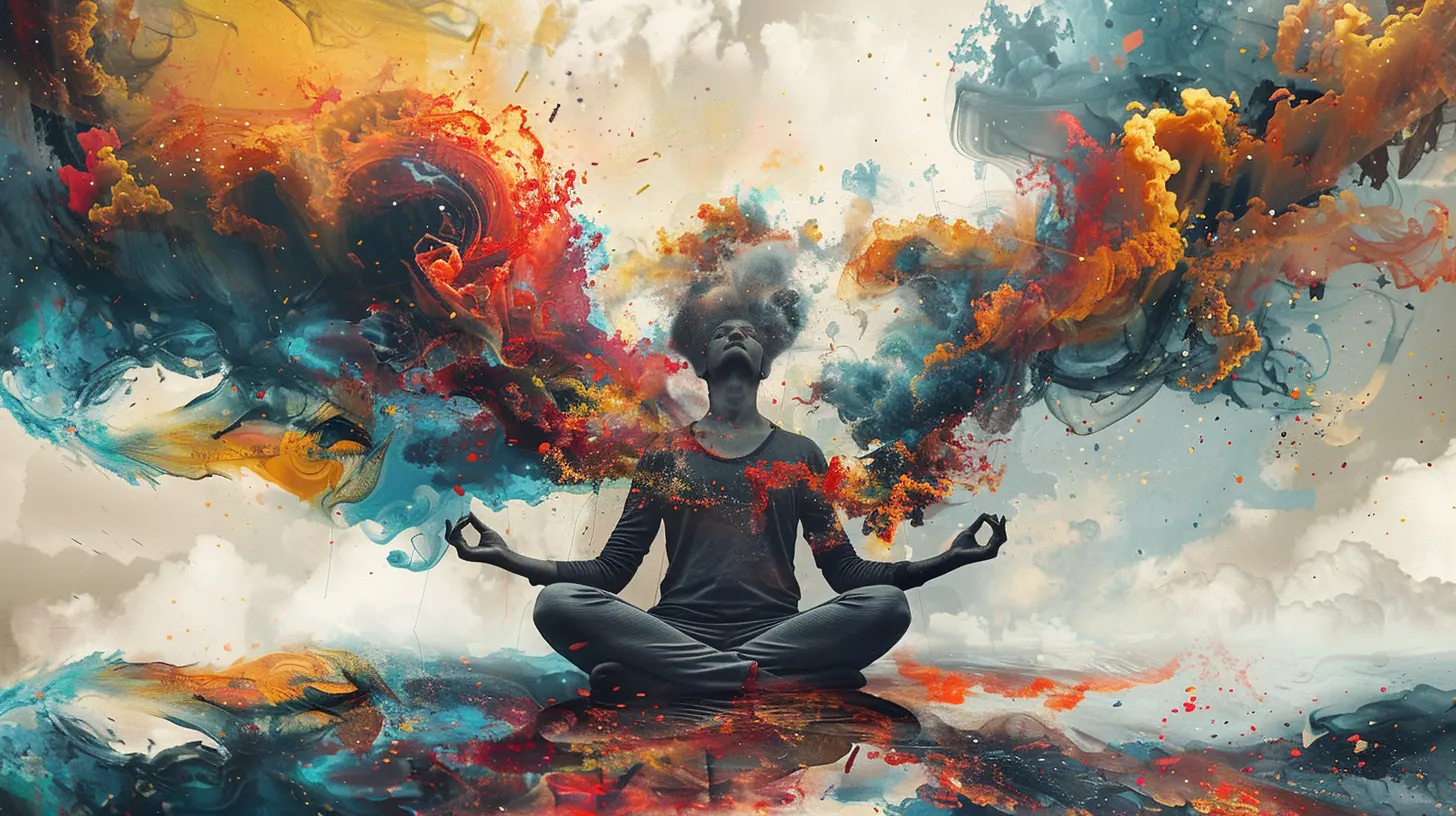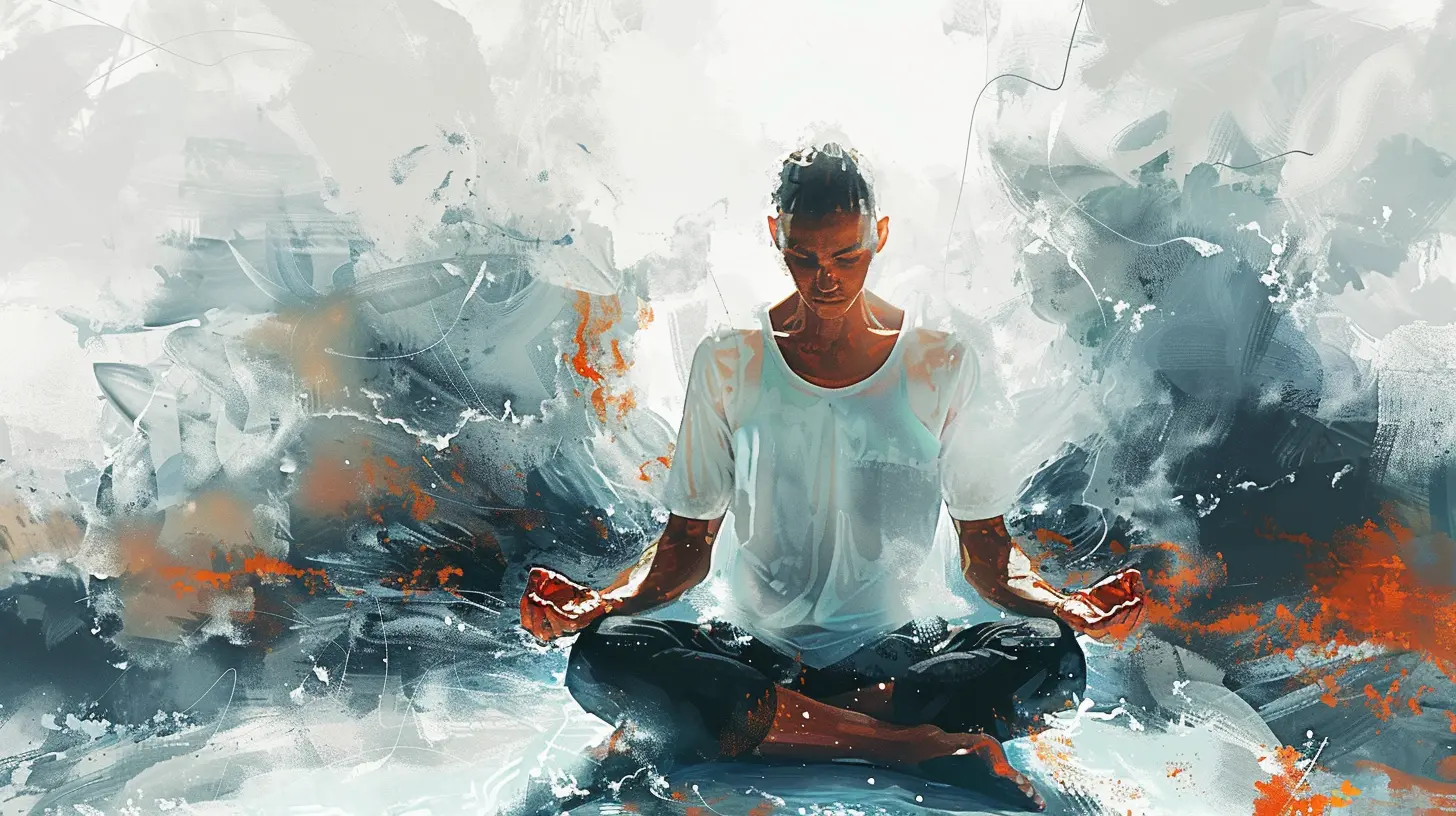Yoga and Mental Health: Finding Calm in Chaos
14 September 2025
Life can feel like a never-ending roller coaster, right? One minute, everything's smooth; the next, you're drowning in deadlines, stress, and anxiety. If that sounds like you, you're not alone. The modern world is chaotic, and mental health struggles are more common than ever. But there's good news—yoga can help bring back balance, peace, and clarity.
Yoga isn’t just about twisting into impossible shapes; it’s a powerful tool for mental well-being. So, how exactly does it work? Let’s break it down. 
The Connection Between Yoga and Mental Health
If you've ever tried yoga, you probably noticed that it leaves you feeling calm and centered. This isn't just in your head—science backs it up. Yoga works on both the body and mind, helping you manage stress, anxiety, and even depression.1. Yoga Reduces Stress and Anxiety
When life gets overwhelming, your body goes into "fight or flight" mode, releasing stress hormones like cortisol. Yoga helps dial this down by activating the parasympathetic nervous system, which promotes relaxation.Through controlled breathing (pranayama) and mindful movement, yoga trains your body to stay calm even in stressful situations. It’s like giving your nervous system a reset button.
2. Boosts Mood and Fights Depression
Ever heard of the "yoga high"? It’s real. Yoga increases the production of serotonin and dopamine—the feel-good neurotransmitters responsible for happiness.By combining movement, breath, and meditation, yoga creates a natural mood boost. Think of it as a workout for your emotions, leaving you feeling refreshed and uplifted.
3. Improves Focus and Mental Clarity
If your mind feels like an internet browser with 100 tabs open, yoga can help. Through mindfulness and meditation, yoga enhances concentration and mental clarity.Practices like balancing poses (Tree Pose, Warrior III) train your brain to stay present, improving cognitive function over time. 
How Yoga Helps Manage Common Mental Health Issues
Yoga for Anxiety and Panic Attacks
Anxiety feels like an uncontrollable storm raging in your mind. Yoga helps quiet that storm by grounding you in the present moment.Breathwork techniques like Nadi Shodhana (Alternate Nostril Breathing) and deep belly breathing slow the heart rate and reduce anxiety symptoms. Certain poses like Child’s Pose and Legs-Up-The-Wall Pose also promote relaxation.
Yoga for Depression
When depression takes over, even getting out of bed can feel impossible. Yoga provides gentle movement that uplifts your mood without feeling overwhelming.Backbends like Cobra Pose and Camel Pose open up the chest and stimulate energy flow, which can help combat feelings of sadness and fatigue.
Yoga for PTSD and Trauma
For those dealing with trauma or PTSD, yoga can be a safe way to reconnect with the body and regain control. Trauma-sensitive yoga focuses on slow, mindful movements and deep breathing to help regulate emotions.
The Science Behind Yoga and Mental Health
Yoga’s benefits aren’t just anecdotal; research has proven its effectiveness in mental health care.- Reduces Cortisol Levels: Studies show that regular yoga practice lowers cortisol, the stress hormone linked to anxiety and depression.
- Improves Sleep: Yoga enhances sleep quality by relaxing the nervous system, making it easier to fall and stay asleep.
- Boosts Brain Function: Research indicates that yoga increases gray matter in the brain, improving memory, focus, and emotional regulation.
So, if you’ve ever wondered whether yoga is scientifically legit, the answer is a resounding YES. 
Best Yoga Poses for Mental Health
You don’t need to be a yoga pro to reap the benefits. Here are some simple but powerful poses to incorporate into your routine:1. Child’s Pose (Balasana)
- Calms the nervous system- Releases tension in the back and shoulders
- Promotes relaxation
2. Warrior II (Virabhadrasana II)
- Builds confidence and stability- Improves focus and concentration
- Strengthens body and mind
3. Tree Pose (Vrksasana)
- Enhances balance and mental clarity- Encourages mindfulness and grounding
- Improves posture and focus
4. Legs-Up-The-Wall Pose (Viparita Karani)
- Relieves stress and fatigue- Improves circulation and relaxation
- Reduces symptoms of anxiety
5. Corpse Pose (Savasana)
- Deep relaxation for the mind and body- Reduces stress and lowers blood pressure
- Enhances mindfulness and meditation practice
Even just a few minutes in these poses can make a world of difference.
Incorporating Yoga into Your Daily Routine
Starting a yoga practice doesn’t have to be complicated. Here’s how to make it a part of your daily life:1. Start Small
Begin with just 5-10 minutes a day. A few deep breaths and some light stretching can set a positive tone for the day.2. Find a Style That Works for You
- If you love movement, try Vinyasa or Hatha Yoga.- If you need relaxation, go for Restorative or Yin Yoga.
- If you want mental clarity, Yoga Nidra or Meditation is a great choice.
3. Use Online Resources
There are plenty of free yoga classes on YouTube. Find an instructor whose teaching style resonates with you.4. Make It a Habit
Schedule your yoga sessions just like any other important task. Whether it’s morning, lunch break, or before bed, consistency is key.5. Don’t Stress About Perfection
Yoga isn’t about being perfect—it’s about progress. Some days will be easier than others, and that’s okay. Listen to your body and enjoy the process.Final Thoughts: Why Yoga Is the Ultimate Mind Booster
Life can get messy, but yoga provides a way to stay grounded amidst the chaos. Whether you're dealing with stress, anxiety, or just need a mental reset, yoga offers a natural and effective solution.It’s not just about flexibility and strength—it’s about finding peace, balance, and a healthier mind. So, unroll your mat, take a deep breath, and let yoga guide you toward inner calm.
Remember, the journey to mental wellness starts with a single breath. Are you ready to take yours?
all images in this post were generated using AI tools
Category:
YogaAuthor:

Nelson Bryant
Discussion
rate this article
1 comments
Trinity McGrady
This article insightfully highlights yoga's transformative potential for mental health, especially in today’s chaotic world. By fostering mindfulness and emotional resilience, yoga not only enhances physical strength but also equips individuals with essential tools to navigate life's challenges, making it a compelling practice for overall well-being.
September 24, 2025 at 10:46 AM

Nelson Bryant
Thank you! I'm glad you found the article highlights the important connection between yoga and mental health. Its transformative effects are truly valuable in our fast-paced world.


